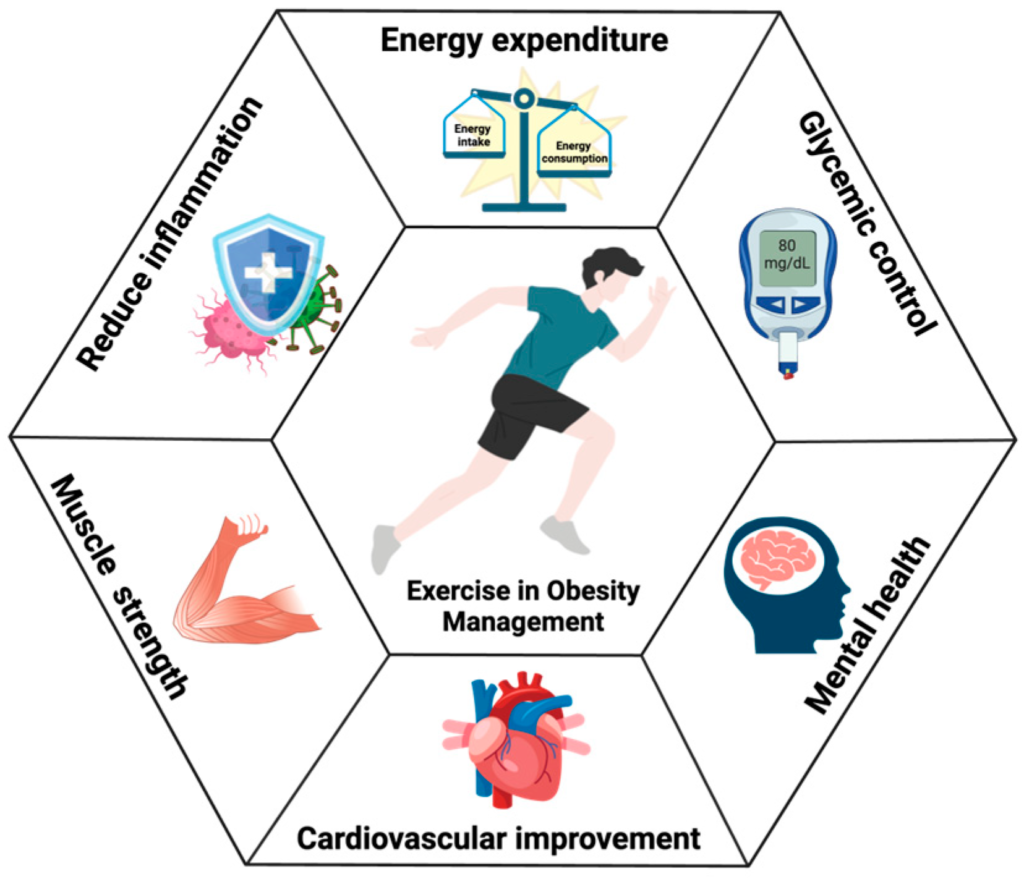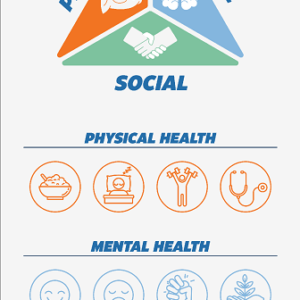Discover Organic Exercise Alternatives to Improve Your Wellbeing
In an era marked by a heightened awareness of health and wellness, the exploration of organic exercise alternatives has gained considerable traction. Such alternatives not only foster physical wellbeing but also enhance mental health, promoting a holistic approach to personal fitness. A growing body of research suggests that engagement in organic farming or community gardening can serve as a form of exercise, cultivating both the body and the mind through intentional movement and connection to nature. As consumption of organic foods continues to skyrocket, with sales reflecting a 20% annual increase globally, the demand for the associated physical activities involved in organic practices rises accordingly (Bloom et al.). Integrating practices such as garden-based activities or eco-friendly workouts can significantly improve overall wellbeing, supporting a lifestyle that values sustainability and health. Image1 visually encapsulates the essence of health assessments that are pivotal in understanding the importance of these organic exercise methods, emphasizing the relationship between proactive health and holistic living.
A. Overview of the importance of physical activity for overall wellbeing
Physical activity plays a pivotal role in enhancing overall wellbeing, contributing not only to physical health but also to mental and emotional vitality. Regular exercise improves cardiovascular health, maintains a healthy weight, and boosts immune function, forming a foundation for a healthier lifestyle. Furthermore, engaging in physical activity generates positive psychological effects by elevating mood and alleviating symptoms of anxiety and depression. These benefits are particularly pertinent as they align with organic exercise alternatives, which prioritize sustainable practices and holistic approaches to health. For instance, innovative practices within the organic sector underscore the connection between health and the environment, emphasizing the benefits of physical activity in natural settings and community-oriented activities that foster social connections and well-being (Cuoco et al.). Additionally, initiatives aiming at the economic and ecological balance showcase a direct correlation between biodiversity and health, reinforcing the significance of active lifestyles in promoting resilience and sustainable well-being (Balmford et al.).
| Activity | Physical Benefits | Mental Benefits | Environmental Benefits |
| Hiking | Improved cardiovascular health | Reduced stress and anxiety | Low carbon footprint |
| Gardening | Increased strength and flexibility | Enhanced mood and self-esteem | Promotes biodiversity |
| Outdoor Yoga | Better balance and coordination | Improved focus and mindfulness | Connects with nature |
| Cycling | Builds muscle and endurance | Boosts cognitive function | Reduces air pollution |
II. Exploring Nature-Based Exercises
The exploration of nature-based exercises reveals their unique ability to enhance both physical and mental well-being, resonating with the increasing body of evidence advocating for organic alternatives to traditional workout routines. Engaging in activities such as hiking, gardening, or outdoor yoga not only fosters a connection to the environment but also promotes holistic health benefits, including improved cardiovascular fitness and reduced stress levels. Nature-based exercises effectively channel the bodys intrinsic connection to the natural world, potentially leading to enhanced motivation and enjoyment, thus making these activities more sustainable over time. The benefits are underlined by research that emphasizes the positive outcomes of physical activity on metabolic health, suggesting that incorporating these organic exercises can significantly contribute to overall wellness (Davis et al.). Furthermore, images depicting the enjoyment of exercise in natural settings, such as those shown in , reinforce the concept that nature enriches the exercise experience, promoting a healthier lifestyle in both mind and body.
A. Benefits of outdoor activities such as hiking and gardening
Engaging in outdoor activities such as hiking and gardening offers a plethora of benefits that extend beyond mere physical fitness, significantly enhancing mental and emotional well-being. Research indicates that immersion in natural environments can expedite healing processes and elevate mood, allowing individuals to experience tranquility and rejuvenation as they revel in the outdoors (Morell et al.). Hiking provides cardiovascular benefits while simultaneously fostering a deeper connection to nature, promoting a holistic approach to health. Gardening, on the other hand, facilitates physical activity and encourages mindfulness through nurturing plant life, thereby reducing stress and anxiety. These activities also offer social interactions that can mitigate feelings of isolation and enhance community bonds. Moreover, the insights from the European Commission underscore the necessity of maintaining access to such enriching environments for all, thereby ensuring that these organic exercise alternatives remain accessible for boosting overall wellbeing (Baker et al.). For a visual representation of exercise benefits, see .
III. Mind-Body Practices
Incorporating mind-body practices into ones regular exercise regimen represents an effective organic alternative to traditional forms of physical activity. Techniques such as yoga, tai chi, and mindfulness meditation not only enhance physical strength and flexibility, but they also foster greater awareness of the body and its responses to stress and movement. Engaging in these practices allows individuals to establish a deeper connection between mental and physical health, as evidenced by the improvement in metabolic control and reduction of inflammation associated with regular exercise (). Furthermore, the decision-making processes integral to these practices encourage a holistic approach to wellness, aligning with the notion that deliberate choices shape our health trajectories ((Gaiseanu et al.)). Thus, mind-body practices not only serve to improve physical fitness but also cultivate a positive mental state, serving as a vital component of an active lifestyle that promotes overall well-being ((Davis et al.)).
A. The role of yoga and tai chi in enhancing mental and physical health
Yoga and tai chi serve as powerful tools in enhancing both mental and physical health, tapping into ancient practices centered around mindfulness and movement. The integration of breath control, meditation, and physical postures in these disciplines promotes stress relief, improves mood, and fosters a sense of overall well-being, a phenomenon increasingly recognized in contemporary health discourse. A systematic review highlights yogas effectiveness as a treatment for depression, showing comparable results to traditional therapies in managing symptoms and emphasizing its safety and tolerability (Eggen et al.). Additionally, the adaptable nature of these practices allows individuals of varying fitness levels to engage and benefit, addressing the growing need for accessible health interventions. As popular representations of yoga increasingly intertwine spirituality with consumerism, it remains crucial to discern its intrinsic health value, as noted in qualitative studies (Puustinen et al.). This holistic approach underscores yoga and tai chi as substantive organic exercise alternatives for improving overall wellness.
Exploring organic exercise alternatives emerges as an essential strategy for enhancing overall well-being, particularly as traditional fitness regimes may not suit everyone. The integration of exercise into daily life is not solely about physical health; it also encompasses mental, emotional, and social dimensions that contribute significantly to a fulfilling lifestyle. Research supports the notion that a holistic approach to health promotion encompasses various assets, such as constructive relationships and opportunities for independence, which enhance life satisfaction among individuals, especially the youth (Fenton et al.). Additionally, the role of exercise in reducing inflammation and improving cardiovascular health highlights its multifaceted benefits, demonstrating how these organic alternatives positively affect metabolic health outcomes . By prioritizing personalized and sustainable practices, individuals can cultivate a balanced lifestyle that nurtures their well-being effectively, paving the way for healthier communities overall.
A. Summary of the advantages of incorporating organic exercise alternatives into daily routines
Incorporating organic exercise alternatives into daily routines offers numerous advantages that can significantly enhance overall well-being. These alternatives promote a more natural and integrative approach to physical activity, often aligned with daily tasks and environments. Engaging in activities such as gardening, walking instead of driving, or utilizing active transportation methods fosters not only physical fitness but also mental health improvements, as evidenced by the correlation between physical exercise and enhanced mood states. Additionally, these organic practices help mitigate the adverse effects of sedentary lifestyles, addressing critical public health concerns related to obesity and chronic illness (Harris et al.). Furthermore, embracing such alternatives can strengthen community ties and environmental awareness, creating a sense of collective responsibility towards health (Balmford et al.). As demonstrated in the image highlighting the broad benefits of exercise, these organic methods serve as valuable tools for individuals aiming to lead healthier, more fulfilling lives .






